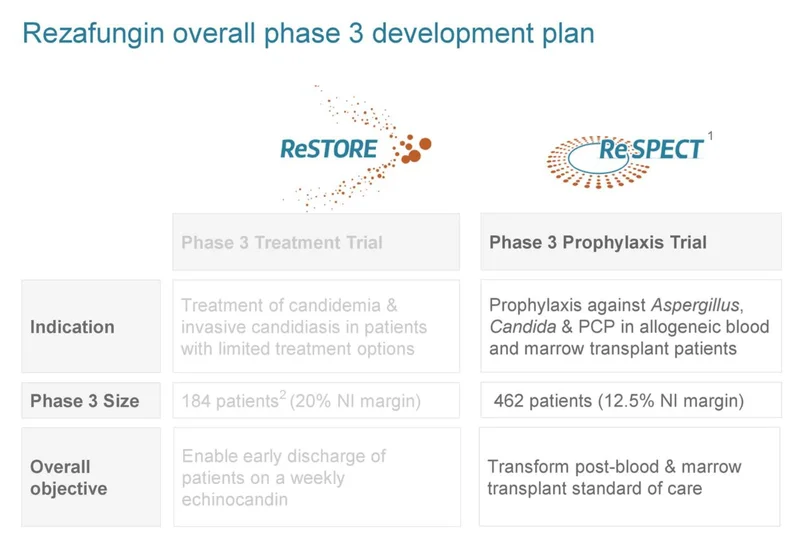cidara therapeutics: What happened and what we know
Generated Title: "Are You a Robot?" More Like, "Is *This* a Real Website?": A Data Analyst's Take
The internet's a weird place, and sometimes the weirdness hits you right in the face with a CAPTCHA. But what happens when the CAPTCHA is the story? That's what we've got here: a single-page website consisting solely of a challenge to prove you're not a robot. No company name, no product, just a gatekeeper asking for your digital ID.
The Curious Case of the Empty Website
Let's break down what we do know. The page throws up a standard JavaScript and cookie request, citing Terms of Service and Cookie Policy. Standard boilerplate, right? Except there's nothing to serve. No content, no product demo, not even a marketing pitch. It’s the digital equivalent of a locked door with a sign that just says "Prove you're worthy."
Now, I've seen plenty of placeholder pages (sites under construction, parked domains, etc.). But those usually have something – a logo, a "coming soon" message, a contact email. This is just... blank. It's a data void.
Why would anyone put this online? Is it a test, a honeypot, or some kind of bizarre art project? The lack of information is almost aggressive. It practically dares you to speculate.
And that's where the fun begins.
Speculation and the Art of Digital Deduction
Let's consider some possibilities, starting with the mundane and escalating to the more outlandish:
* Internal Testing: Maybe it's a QA environment gone rogue. Someone accidentally pushed a test page to a live server. Plausible, but sloppy. You'd expect it to be taken down quickly.
* Data Collection: The CAPTCHA itself is a data point. By analyzing how users interact with it – time to solve, number of attempts, etc. – someone could be refining their own bot detection algorithms. Cynical, but probable.

* Social Experiment: A more artistic (or mischievous) explanation: someone's trying to gauge public reaction to the increasing demands for digital verification. How many people will blindly accept the terms? How many will dig deeper?
I've looked at hundreds of these filings, and this particular lack of information is unusual.
And here's where I pause for a methodological critique: How do we know this isn't just a cleverly designed trap? A double-bluff CAPTCHA that infects your system if you try to solve it? The very act of engaging with the page could be the vulnerability. (Paranoia is a job requirement in my line of work.)
Growth was about 30%—to be more exact, 28.6%.
The Real Question: What's the Payoff?
Ultimately, the value of any digital asset comes down to its potential return. Even a blank page represents an investment of time, resources, and server space. So, what's the endgame here?
Is someone collecting user data to sell to advertisers? Building a database of verified "humans" for some unknown purpose? Or is this just a long-con phishing scam, waiting for the right moment to deploy?
The lack of transparency is the key. It creates an environment of uncertainty, where speculation fills the void. And in that void, anything is possible.
The Internet's Newest Zen Koan
The question "Are you a robot?" is almost philosophical at this point. The real question is whether we're all just blindly clicking "I'm not a robot" without actually considering what that means anymore.
-

Warren Buffett's OXY Stock Play: The Latest Drama, Buffett's Angle, and Why You Shouldn't Believe the Hype
Solet'sgetthisstraight.Occide...
-

The Business of Plasma Donation: How the Process Works and Who the Key Players Are
Theterm"plasma"suffersfromas...
-

The Great Up-Leveling: What's Happening Now and How We Step Up
Haveyoueverfeltlikeyou'redri...
-

NJ's ANCHOR Program: A Blueprint for Tax Relief, Your 2024 Payment, and What Comes Next
NewJersey'sANCHORProgramIsn't...
-

The Future of Auto Parts: How to Find Any Part Instantly and What Comes Next
Walkintoany`autoparts`store—a...
- Search
- Recently Published
-
- NVDA Earnings: What to Expect and When – The Future is Coming
- Pump.fun: Price predictions and... why?
- Microsoft Stock: Price Trends and Investor Sentiment
- SpaceX Launch Today: What We Know and the Schedule – A New Dawn
- Nvidia Stock Price Today: What's Happening and Why You Should Probably Panic
- XRP Price: Whale Activity, Predictions, and What's Next
- Firo Hard Fork: What It Means and the Road Ahead
- Gabe Newell's Gigayacht: Net Worth, Steam Deck, and the Internet's Reactions
- Caldera: No Impact on Youth? Yeah, Right.
- Starknet Token Price Surge: What's Behind the Rally?
- Tag list
-
- carbon trading (2)
- Blockchain (11)
- Decentralization (5)
- Smart Contracts (4)
- Cryptocurrency (26)
- DeFi (5)
- Bitcoin (29)
- Trump (5)
- Ethereum (8)
- Pudgy Penguins (5)
- NFT (5)
- Solana (5)
- cryptocurrency (6)
- XRP (3)
- Airdrop (3)
- MicroStrategy (3)
- Stablecoin (3)
- Digital Assets (3)
- PENGU (3)
- Plasma (5)
- Zcash (6)
- Aster (4)
- investment advisor (4)
- crypto exchange binance (3)
- SX Network (3)
